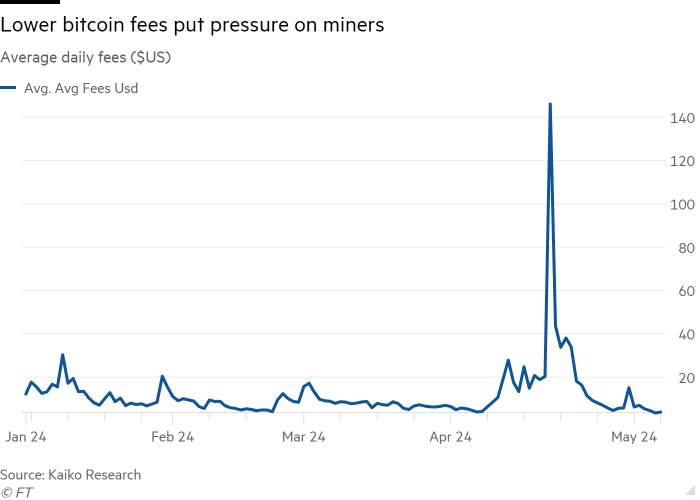
My political enemy’s enemy is my friend
Financial Times
This article is an onsite version of our Cryptofinance newsletter. Premium subscribers can sign up here to get the newsletter delivered every week. Standard subscribers can upgrade to Premium here, or explore all FT newsletters
Hello and welcome to the FT Cryptofinance newsletter. This week we’re taking a look at an outbreak of agreement in US politics.
Washington is a deeply divided place but politicians there have found some rare consensus around digital assets. What’s even stranger is that the crypto market isn’t on the defensive but cheering them on.
The issue uniting Congress is a seemingly minor rule change from the securities regulator that turned out to have large implications for the US financial services industry.
“The Securities and Exchange Commission is turning crypto into a political football and forcing the President to unnecessarily choose sides on an issue that matters to many Americans,” wrote Democrat congressman Wiley Nickel this week.
This is the backdrop to the US Senate’s vote on Thursday to nullify an obscure rule introduced without warning by the SEC in March 2022. The vote followed a similar one in the House of Representatives a few weeks ago.
Both legislative bodies have pushed back on the rule, which was buried in a memo the SEC normally reserved for guidance on dry accounting issues. It was intended to ensure crypto platforms holding assets for users upped their patchy standards.
But laid in Staff Accounting Bulletin #121 was a stick of dynamite. It stipulated that anyone holding crypto assets must treat them as both a liability and an asset on their balance sheet. Custodied assets are normally accounted as off-balance sheet items. Crypto was different, the SEC said.
This had a chilling effect, said Jason Allegrante, chief legal officer at Fireblocks, a digital infrastructure provider. Banks needed to hold more equity capital to cover their balance sheets and the capital charges were so large holding crypto becomes “economically unfeasible”.
Since then, anger from all quarters against the SEC and its chair, Gary Gensler, over SAB 121 has only grown. The fight isn’t won yet. Thursday’s Senate vote puts Congress on a potential collision course with the White House, as the Biden administration has promised to veto the bill.
To this distant observer, it’s hard to see why Democrats would put up a determined rearguard six months out from a presidential election. It seems a red rag to angry crypto supporters on the Republican side.
Even so, a crypto market used
The full article is available here. This article was published at FT Markets.
Comments are closed for this article!